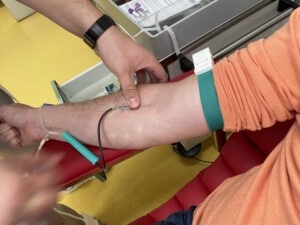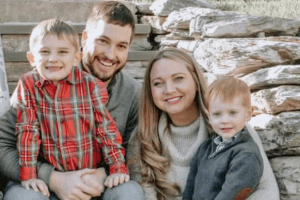
It’s not often that you hear your doctor ask about your spirituality or beliefs. But a new survey of 920 adults shows that patients want their doctors to ask about their spirituality in many cases, such as when facing a life-threatening illness disease, or serious medical condition.
A positive spirit is often credited for helping people cope with life’s toughest obstacles, such as a devastating illness. But spirituality’s role in health care has long been controversial, and doctors traditionally have shied away from spiritual or religious discussion.
Evidence indicates that patients who are more spiritual or religious have lower mortality rates, reduced stress, and overall better physical and mental health. They typically require fewer health services. Lack of spiritual training, unwillingness to depart from established medical arenas, and ethical issues are some of the reasons why doctors have avoided widespread spiritual discussion with patients.
In an effort to clarify how spirituality should be encompassed in a medical setting, patients at five family physician offices (four urban, one suburban) in Ohio were asked to rate their spirituality (1 being not spiritual at all, 5 being extremely spiritual) and to describe how their beliefs played a role in their health care decisions.
The survey also included questions about their medical history, experiences with a serious illness, and whether or not they had ever asked a doctor (or vice versa) about their spirituality. The majority of those surveyed were women.
Study author Gary McCord, MA, of Northeastern Ohio Universities College of Medicine, found that 83% of respondents wished to discuss their spiritual beliefs with their doctor. Spiritual discussion was most acceptable when dealing with a life-threatening illness, serious medical condition, or a loss of a loved one. It was least welcome during routine physical exams.
Among the findings:
- People aged 30 to 64 most welcomed spiritual discussions.
- 17% never wanted to be asked about their spirituality.
- 20% always wanted their doctor to be aware of their beliefs.
- 18% told their doctor about their beliefs without being asked.
Of those who wished to discuss spirituality:
- 87% wanted their doctor to understand how their beliefs helped them deal with being sick.
- 83% wanted their doctor to understand how their beliefs influenced their decisions.
- Women were more likely than men to change their medical treatment based on spirituality.
- Two-thirds believed that by having doctors know about their spiritual beliefs, they would be advised on how to take care of them when sick.
- 67% believed that by having doctors know their spiritual beliefs they would be compassionate and encourage hope.
Many patients definitely welcomed spiritual discussions from their physicians and felt it was an aid in being positive and encouraged spiritual healing.





































